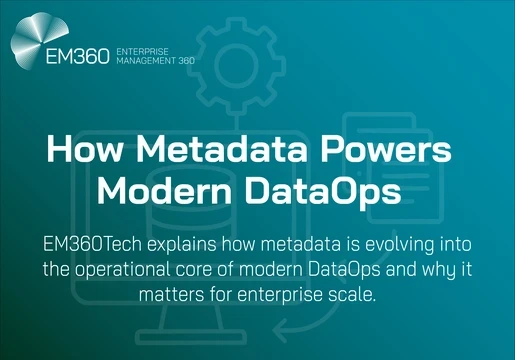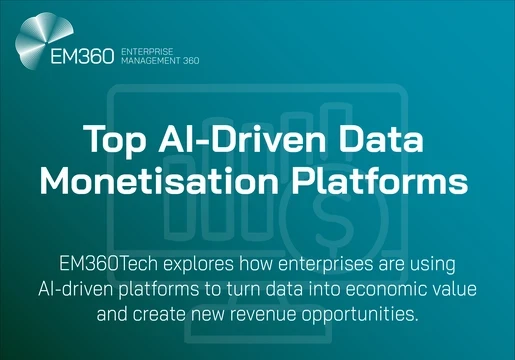Emilio Valdes, SVP, EMEA & LATAM, Informatica

As 2024 approaches, the simple acronym ‘AI’ will continue to dominate media debate, boardrooms, and regulatory discussions. We may not have created superintelligence just yet, but ‘narrow AI’ applications like ChatGPT and automated trading programmes are rapidly demonstrating the feasibility and power of so-called artificial intelligence. No matter your sector, AI can either be your best friend or your worst nightmare – and the deciders between the two are preparedness and proactivity. In other words, are you crossing your fingers and hoping AI won’t disrupt your business too badly? Or are you preparing your data so you can innovate, building and deploying AI applications that will improve your performance?
In this context, the Chief Data Officer (CDO) will be right at the heart of the issue. Indeed, over the last 15 years, the CDO’s role has evolved massively due to advancements in AI. No longer a database wrangler, now they’re the orchestrator who ensures different lines of business can use AI to automate and innovate. Without a top-notch CDO running a high-quality data management operation, business-ready AI will remain a pipe dream.
For large-scale enterprises with data stored across various locations, it’s essential to have local and global CDOs who can overcome geographical obstacles to data, AI and business strategy. And whatever the size of the business, it’s going to be increasingly important that CDOs can combine three key skillsets. First, soft skills, including the ability to persuade naysayers and manage large-scale change. Second, the technical knowledge to create platforms that ensure data is trusted and usable. And third, the commercial judgement to turn technology investments into a strategic enabler.
Nurturing data literacy
In an AI-enabled world, people, systems, and processes all depend on data to operate. In many organisations, that means there’ll be significant cultural change required and a data infrastructure that enables non-technical users to use it intuitively and generate their insights. So, today's CDO needs to be an impeccable communicator who can influence and persuade widely to generate buy-in and commitment for any new data-led initiative. They also need to understand the essentials of change management, building a plan and the practical steps to achieve its objectives, solve problems and deliver. Ultimately the CDO can connect data to business value and explain this to any stakeholder within the organization they operate in.
Enabling corporate strategy
It’s not just innovative new systems like AI that will require the CDO’s involvement in the coming year. Creating a single platform for data management can also make it easier for CDOs to support the organisation’s broader strategic challenges. Consider the avalanche of new reporting requirements around sustainability and other ESG metrics scheduled to land in the next two years. Having a dedicated repository for ESG data will place firms on a much better footing to adjust and respond. As the organisation's senior data expert, CDOs can lead by making the case for systems that can manage the wide variety of non-financial data types that must be collected and managed – handling unstructured data formats like emails, documents, customer feedback, social media, blog posts, satellite imagery, GPS data and AV files.
That kind of work demands data science expertise. De-risking those complexities speaks to the need for advanced data management capability. In fact, ESG mandates may provide a perfect opportunity for thoroughly modern CDOs to demonstrate their value. They will possess a blend of technical and commercial competence that the business absolutely needs to prove that it's hitting its net zero commitments but won’t easily find in any other role.
How organisations can empower CDOs to navigate the generative AI-led transformation
Ultimately, the role of the CDO is set to become increasingly important in the coming months and years. Businesses need to recognise that the professionals in these roles are a major strategic asset, and ensure their requirements are properly provisioned. That might mean an equal stake at the top table, alongside traditional powerbrokers like the CFO. It might mean taking their budget requirements seriously, recognising the medium- and long-term benefits of an effective data management operation. Or it might be investing in the right staff and systems to make more efficient, productive work possible – the whole business will benefit from a high-functioning CDO and co.







Comments ( 0 )